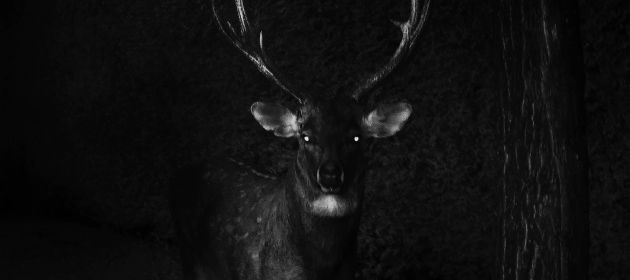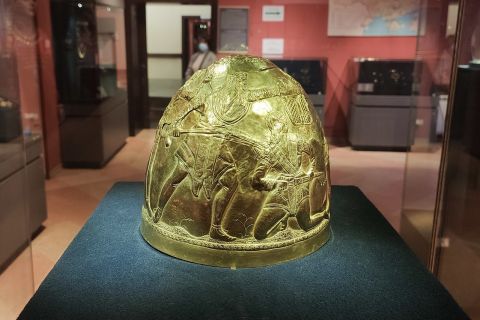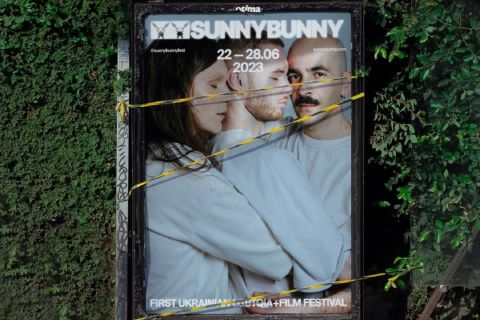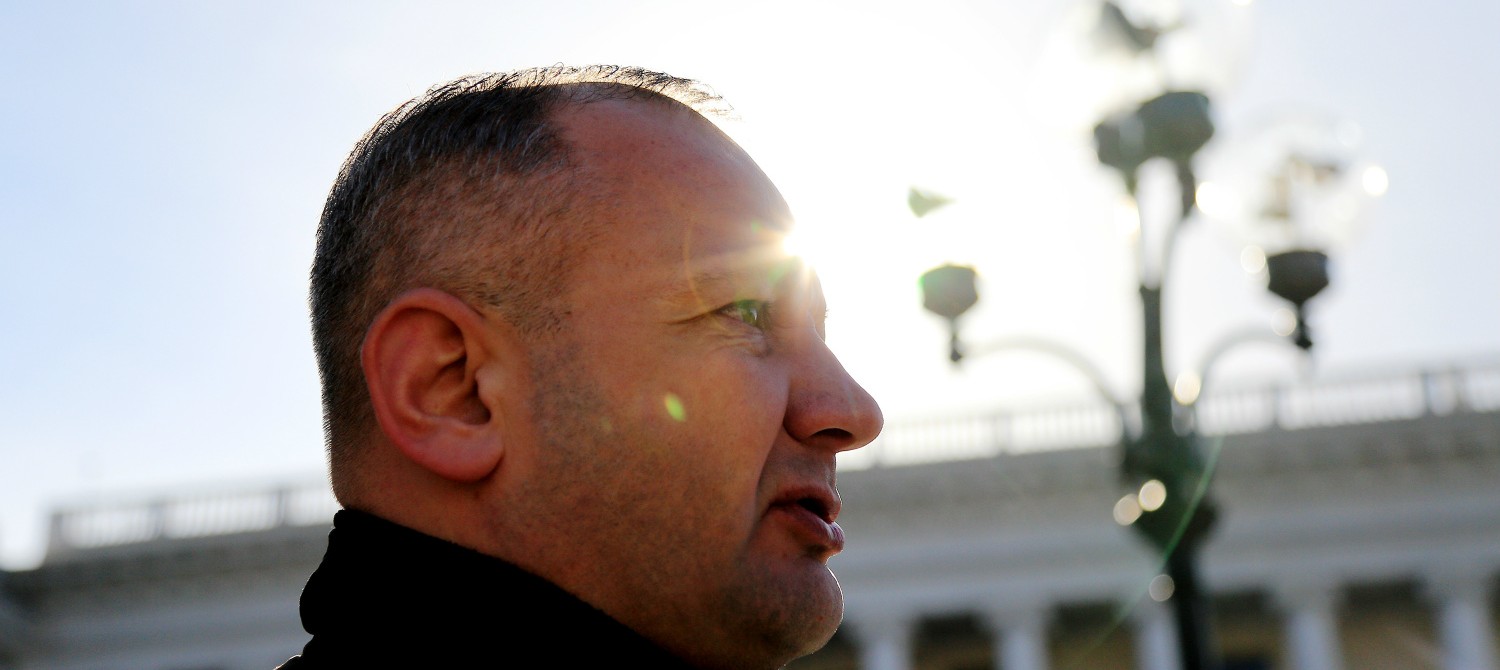
Maidan Activist Ivan Bubenchyk: It’s True I Shot Them in the Back of the Head
There is no more important date in the modern history of Ukraine than February 20, 2014. On that day on the streets of Kyiv, 48 Maidan activists and 4 police officers were killed. Shortly after, then-president Viktor Yanukovych fled the country, the annexation of Crimea started, and after that the war in Donbass. If we make a generalization, it was the day that predestined the loss of 7% of Ukranian territory and many thousand of lives for Ukraine.
Nobody could know any of this in the early morning of February 20. After heavy fighting for two days with the police, which resulted in 31 activists and 8 law enforcement officers dead, the protesters were left with much less ground. Police were now holding positions on Maidan itself. There was no doubt that the next attack would put an end to the uprising, and then in future textbooks they would call it nothing more than ‘mass riots’.
“His focused tactical actions made the law enforcement flee and prevented the peril of the Revolution of Dignity” — Ukrainian Wikipedia is vague about the role of Ivan Bubenchyk in history. He gave the first detailed account of his actions on that day in the movie Captives by Volodymyr Tykhyy. The documentary has already premiered and will be in Ukrainian theaters on February 25. Just before the premiere, Ivan Siyak met with Ivan Bubenchyk on Maidan to hear his account of the events.

Ivan Bubenchyk is talking in Ukrainian, the translation is by Bird In Flight.
— I want to open a fishing school for children. This is what I was doing before Maidan. When in Lviv the students were protesting against Yanukovych, I came to support them. Everyone said that we had to go to Kyiv, so I went. It’s hard to remember the dates, but this was on day one. I’ve been on Maidan since day one.
At first we were standing near the Independence Monument and guarding the students. Later, ‘hundreds’ formed, and I joined the Ninth hundred. I lived on Honchara Street, in the building of People’s Movement of Ukraine (Rukh) (center-right political party, founded in 1989 as a civil-political movement — Ed.), and every night at 11.30 pm we came to guard the metro under Maidan. We controlled all the exits, because special service officers could exit them at anytime to attempt some kind of a sabotage attack or simply disperse us.
I remember that there were internal troops on Hrushevskoho Street, they did not let us go up [to the government building’s quarters]. We came with a letter which said that we were citizens of Ukraine and were free to move in the territory of our country. We said that if we could not exercise this right by the next day, we would attack. And this was what happened. The next day there were stones and Molotov cocktails.

— By February 20 Yanukovych’s special services did everything to eliminate Maidan. They burned down the Trade Unions Building, which was very important for us. We lived and slept there, used the toilet, ate, and received medical aid. After they did it, the next morning God gave us the opportunity to get inside the Music Academy. We helped a Roma boy get in through the window. He opened the doors from inside. We could get some sleep there. Some got an hour of sleep, some only half an hour — we couldn’t sleep more with all the awful noise they were subjecting us to. Everyone was desperate but me. I have a firm belief in God’s power and justice.
In the Music Academy, there were guys with hunting guns. They were shooting bird shot at the special forces who were about 70 meters away from us. But I chased them away from the windows, as the police started throwing Molotov cocktails at us, to burn our only shelter down. Bird shot only irritated them.
At that point I was praying for forty automatic rifles for Maidan. After some time I realized I was asking for too many. So, I asked for twenty. In the morning of February 20, this guy came and brought a Kalashnikov in a tennis racket bag and 75 cartridges. Many would want to hear that we took the rifle from titushkas (mercenary agents who supported the police force — Ed.) during the clashes of February 18. But this was not what happened.
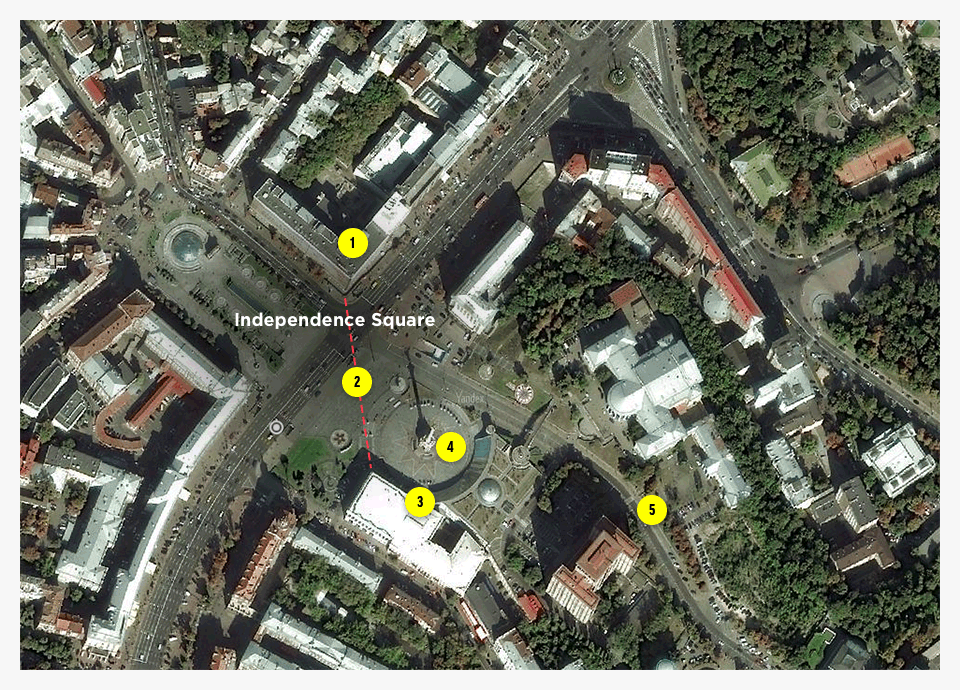
— I was shooting from the window that was the furthest from Maidan, behind the columns on the second floor. I could clearly see the police officers with their shields at the Independence Monument. There were about two hundred of them there behind the sandbags, there was no room for more. Assault groups with pump-action shotguns were advancing from there. They shot point-blank at the barricades, without any shame.
I was aiming at those who were in charge. I could not hear them, but I could see the gestures. The distance was very short, so for two commanders I only needed two shots. I learned to shoot while serving in the Soviet Army. I studied at their military intelligence school. We were trained for operations in Afghanistan and other conflict zones.
They say I shot them in the back of the head, and it’s true. It happened that they were standing with their backs to me. I had no time to wait until they turned around. Then God turned them this way, and this was the way it had been done.
There was no need to kill the others, only shoot them in the legs. I came out of the Music Academy and started moving along the barricades. As I was shooting, I wanted the police to believe we had twenty or forty rifles. I asked the guys to make a small gap between their shields for me. It may be unpleasant for some people to hear… But they were crying with joy. They knew we could not hold out without weapons.
— I reached the Trade Unions Building, and I ran out of cartridges. However, it had already worked, and the police started running. They left everything behind. They climbed over each other like rats.
Not all police units could get away from the activists. The guys got over the barricades and chased them. They made groups of ten to twenty captives, and took them beyond Maidan, to the Kyiv City Hall building. However, the most active of our heroes kept chasing the police up Instytutska Street, and very quickly the police were ordered to shoot at the activists.
This was a difficult moment, as I realized I could stop the shooting. Different people on Maidan — I won’t tell you who they were, but they had some weight — promised me the cartridges. I trusted them, ran around from one place to another… Those were the most difficult minutes of my life, I was completely helpless. They say there were many weapons on Maidan. This is not true. If there were many, nobody would have let the police shoot our people. Ihor Serdiuk and Bohdan Vaida from my hundred died on Instytutska Street.

— I protect my Motherland and my people. When I ran out of cartridges, it was as if a scalpel was taken away from a surgeon. The patient needs help urgently, but the surgeon has no scalpel… And the person died while the doctor is watching.
I have met Berkut officers who fight for Ukraine in the ATO zone (Anti-Terrorist Operation Zone, a term often used by the government and media in Ukraine to identify territory where the war in Donbass takes place — Ed.). But I try to communicate with the people who are the same as me, or better than me. There were certain conflicts between us… If they are at war consciously, not for the veteran status or the money, then it could purify them. But I have no wish to communicate with them.
On Maidan we took a step in the right direction and received a lesson that will let us move forward. However, my state is still not the state of the rule of law, and I still think that all the law enforcement in our state is also unlawful. So I have no wish to communicate with them. Do they want to communicate with me? I think they will after the documentary premieres.
My victims are criminals, enemies. I have to speak out, so that other people knew how they should deal with their enemies.
All photos by Alexander Chekmenev.
